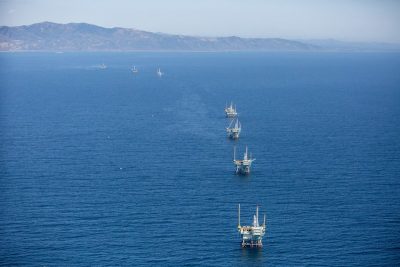Biden Administration Backs Offshore Fracking in California
Federal Filing Urges 9th Circuit to Overturn Ban Backed by Kamala Harris

All Global Research articles can be read in 51 languages by activating the “Translate Website” drop down menu on the top banner of our home page (Desktop version).
To receive Global Research’s Daily Newsletter (selected articles), click here.
Follow us on Instagram and Twitter and subscribe to our Telegram Channel. Feel free to repost and share widely Global Research articles.
***
The Biden administration filed a request today asking the 9th Circuit Court of Appeals to overturn a lower court decision that halted offshore fracking in federal waters off California. Today’s filing asks for an “en banc” review of the key ruling.
Both the Center for Biological Diversity and California attorney general Kamala Harris sued the federal government in 2016 to stop offshore fracking. In June a three-judge panel of the 9th Circuit upheld a lower court decision that prohibits offshore fracking in federal waters off the California coast. Now the administration is asking for en banc review to overturn that ruling and allow offshore fracking to resume.
“It’s incredibly disappointing to see the Biden administration doing the oil industry’s bidding by defending fracking off the California coast,” said Kristen Monsell, an attorney at the Center for Biological Diversity. “This contradicts the administration’s climate goals, because fast-tracking offshore fracking will mean more dirty fossil fuels. The 9th Circuit’s decision was well-reasoned and the right one under the law. We’re confident this effort to overturn it will be rejected. Offshore fracking shouldn’t be allowed at all, let alone without a careful, comprehensive analysis of its harmful environmental effects.”
The 9th Circuit’s June ruling found that the federal government violated the National Environmental Policy Act, Endangered Species Act, and Coastal Zone Management Act when it allowed fracking in offshore oil and gas wells in all leased federal waters off California.
The appeals court order prohibits the Department of the Interior from issuing fracking permits until it completes Endangered Species Act consultation and an environmental impact statement that “fully and fairly evaluate[s] all reasonable alternatives.”
The decision was the result of three separate lawsuits filed by the Center, the state of California, and other organizations.
At least 10 fracking chemicals routinely used in offshore fracking could kill or harm a broad variety of marine species, including sea otters and fish, Center scientists have found. The California Council on Science and Technology has identified some fracking chemicals to be among the most toxic in the world to marine animals.
*
Note to readers: Please click the share buttons above or below. Follow us on Instagram and Twitter and subscribe to our Telegram Channel. Feel free to repost and share widely Global Research articles.
Featured image: Oil rigs off the California coast. Credit: Drew Bird Photo

